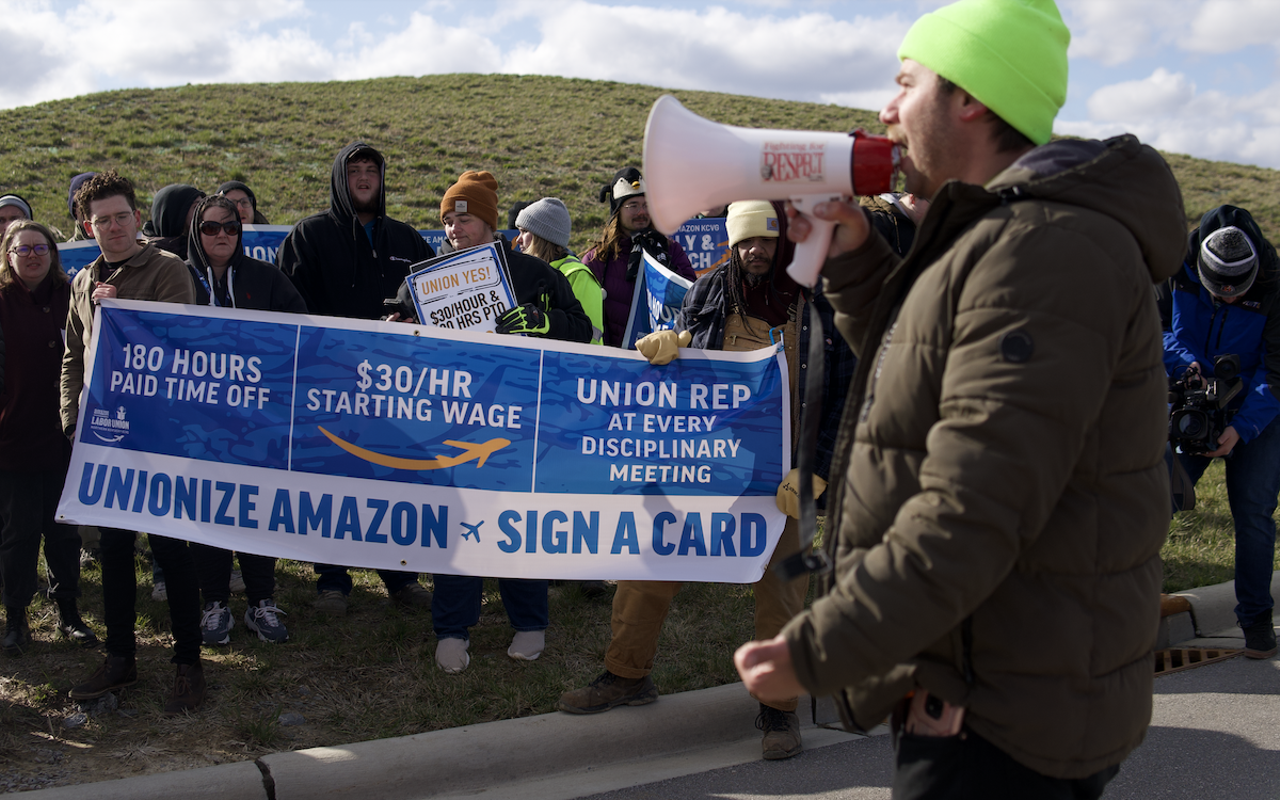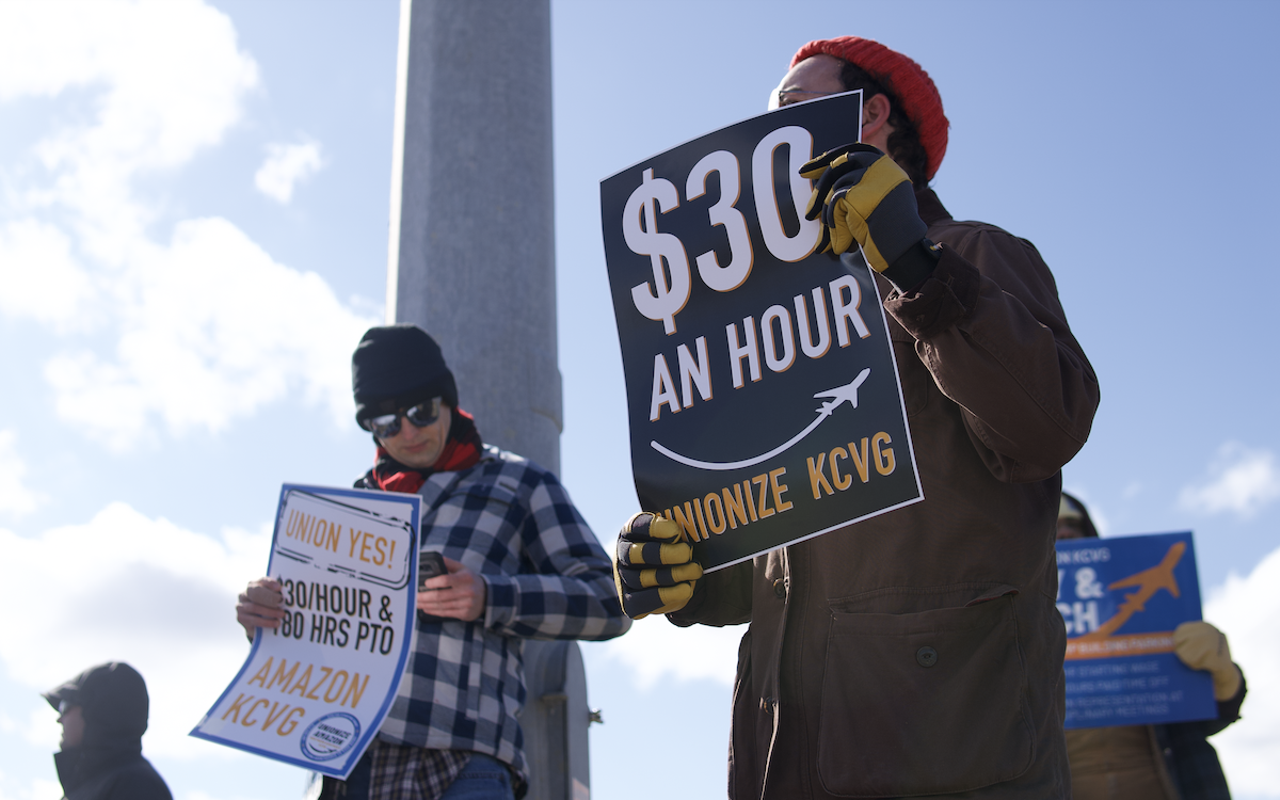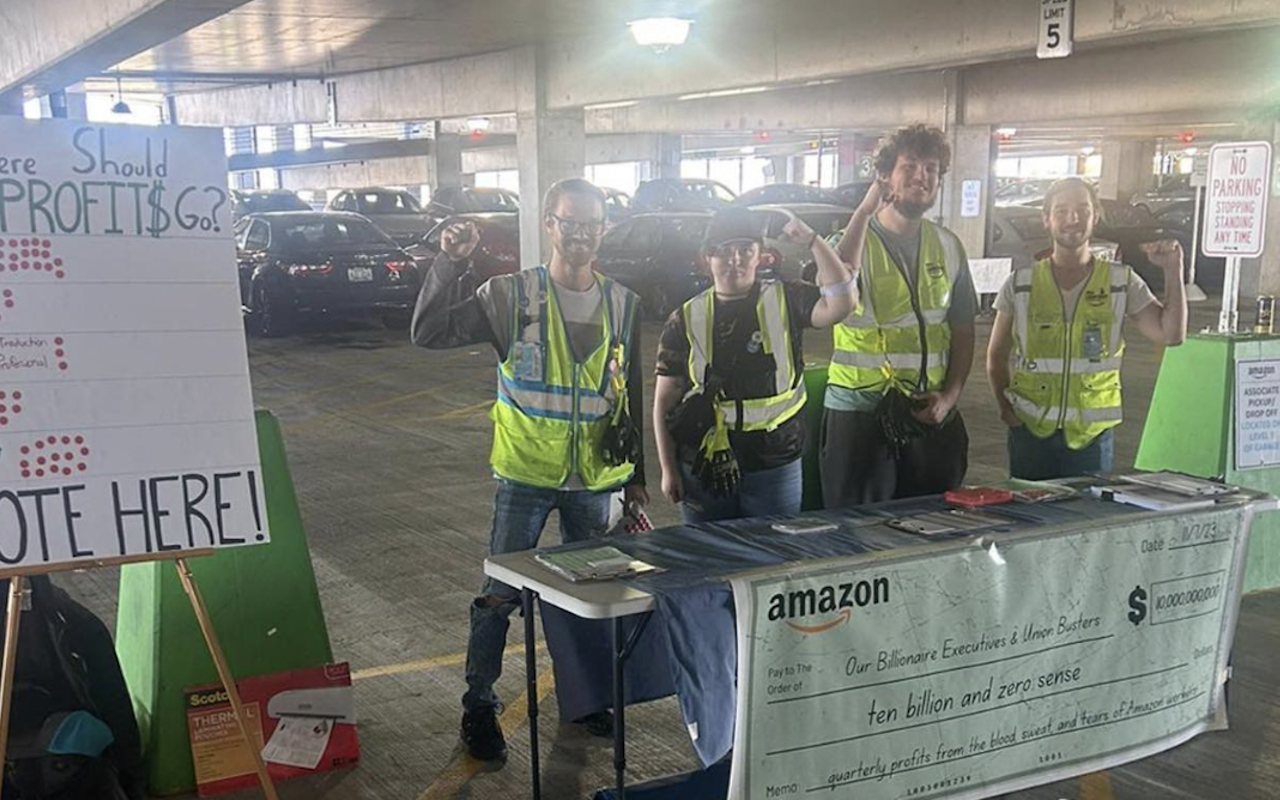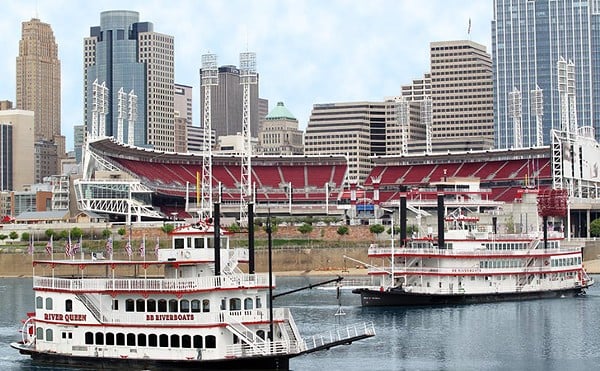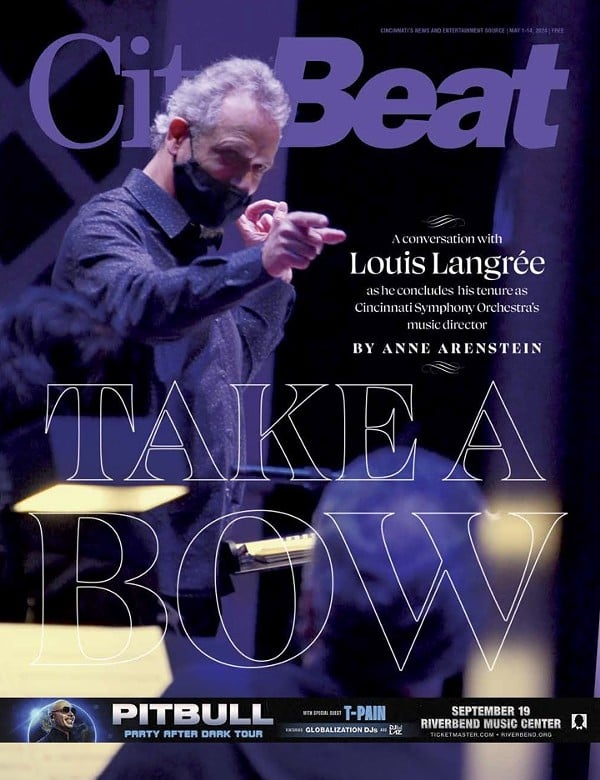Lawyers representing employees at an Amazon facility in Northern Kentucky believe the company is intentionally trying to drag out an unfair labor practice trial to stop its employees from unionizing.
The case heard this week by a federal administrative judge involves union organizers at KCVG, Amazon’s largest air hub facility, located in Hebron, Kentucky. The National Labor Relations Board (NLRB), a federal agency that investigates violations of workers' rights to unionize, issued a broad complaint against Amazon on March 5. The complaint alleges Amazon retaliated against several KCVG employees for union organizing, required employees to attend anti-union presentations and tracked employees who were engaging in union activity, among other complaints.
At the time of the NLRB’s filing, Amazon told CityBeat that the company’s actions have been lawful and that they will let the legal process play out, but the company’s lawyers are already pushing back against subpoenas from the Labor Board and have requested to delay parts of the trial.
On April 22, the first day of the trial at the federal building in downtown Cincinnati, lawyers for Amazon told federal administrative Judge Ira Sandron that they needed time to respond to several subpoenas from the NLRB, saying some of the information requested needs to be cleared by the Transportation Security Administration (TSA) before public filing. It is possible the judge will delay parts of the trial that touch on these subpoenas until Aug. 19 to give TSA time to weigh in.
“Amazon is refusing to submit evidence to the NLRB,” the union wrote on Instagram in response to the delays.
“From the very start of these proceedings, Amazon has shamelessly employed procedural delay tactics in an attempt to dodge accountability for its unlawful anti-union conduct,” said Travis Lavenski, a lawyer representing the Amazon Labor Union at KCVG (ALU-KCVG). “Rather than respect workers’ legal rights to organize and honor their legal duty to cooperate with today’s court proceedings, Amazon is choosing to stonewall the Labor Board, refusing to turn over subpoenaed evidence and asking for one delay after another.”
Employees file a 10(j) injunction
In an attempt to protect KCVG employees from union-busting while the trial plays out, Lavenski has filed a 10(j) federal injunction to require Amazon to stop any unfair labor practices while the NLRB case is being litigated.
“Immediate injunctive is necessary for employees to effectively enjoy their rights to form a union in their workplace,” Lavenski said.
The 10(j) injunction is one of the only tools the NLRB has to actually require companies to change their behavior, as Congress hasn’t given the federal agency much authority to penalize employers for violating workers’ rights to unionize. Because NLRB cases can take months or even years to resolve, the 10(j) injunction gives organizing employees a fairer shot at collective bargaining while the case plays out in court.
“Absent an injunction, Amazon will continue to effectively block workers’ access to the most effective venue to communicate with coworkers about the benefits of unionizing; to discriminate against workers who are vocal about the union; and to spread fear amongst those who might otherwise be amenable to the prospect of unionizing,” Lavenski said.
The NLRB has not yet decided to take on the injunction case, but Lavenski told CityBeat that the NLRB sometimes pursues these injunctions before unions request them in order to protect workers.
“[The Labor Board] let us know that they are considering it, and that they were also considering it on their own as well, just because it's such a big case,” he said.
Why the Supreme Court matters in this case
The 10(j) injunction is currently in the legal spotlight, but not because of Amazon.
Starbucks has asked the United States Supreme Court to raise the bar for federal circuit courts who grant 10(j) injunctions after a lower court denied the company's appeal of a 6th Circuit ruling that required Starbucks to rehire seven employees who were allegedly fired for union activity. The injunction allowed employees at the Starbucks in Memphis to hold a union election while the NLRB case continued. Baristas voted 11 to 3 to join Workers United, the Starbucks employees union.
Lawyers for Starbucks argue that the federal district courts have too low a threshold for granting 10(j) injunctions, saying such injunctive relief should be reserved only for extreme cases. Starbucks wants the justices to impose a singular, rigorous standard across all lower courts.
“If Starbucks gets its way, it will probably be a little bit harder to get 10(j) relief,” Lavenski said. “Which, I mean, it already is very difficult to get that injunctive relief.”
The justices’ decision could have ripple effects for unions across the country, including KCVG, where employees are fighting for higher wages, among other demands.
Background on the union effort at KCVG
Employees at KCVG began union efforts in November 2022 after upper management announced there would be no peak pay for the 2022 holiday rush, but mandatory overtime would be required. Amazon’s gross profit for the 2023 fiscal year was $256.202 billion, an 18.52% increase year-over-year for the world’s largest retailer. Employees pushing for a union at KCVG are asking for a standard $30-per-hour wage, improved health benefits, on-site translation for non-native English speakers, union representation at disciplinary hearings and more.
What’s next?
Day three of the trial on April 24 will begin at 9:30 a.m., rather than 1 p.m. when hearings started on days one and two, meaning there’s a chance testimony from KCVG employees could finally start to enter the public record after several delays.


